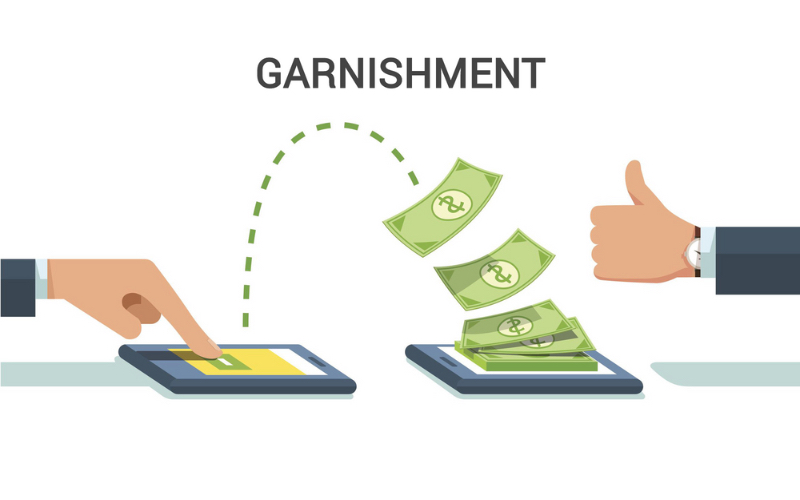In the process of doing business, the question of how to have an effective strategy in the debt collection process is always one of the constant sore issues of enterprises. Especially now, the world economic context is more difficult than favourable, leading to more difficult debt collection, the rise in bad debts necessitates enterprises to allocate substantial human resources and costs towards the debt collection process, and even enterprises may be at risk of bankruptcy because of a constrained cash flow. Moreover, the demand for credit loans is increasing more and more. Therefore, enterprises need to focus on building effective strategies in the debt collection process to reduce human resource utilisation, cut costs and minimise bad debts.
The following article proposes issues that enterprises need to pay attention when formulating an effective strategy in the debt collection process for enterprises.
1. Entering into a written contract with suficient and transparent terms
Although current civil law does not require sale contract, service provision contract or loan agreement to be made in writing[1], it is necessary to have a written contract signed by the parties. This practice provides enterprises a solid basis and minimise the potential for disputes between involved parties. This is a premise to achieve efficiency when implementing effective strategy in the debt collection process.
For contracts for sale and purchase of large-value assets or loan contracts, enterprises may consider notarising contracts at notary practicing organisations established in accordance with the law to further strengthen the authenticity, legality and evidential value of the contract.
Before entering into a contract, enterprises need to ensure that the terms of the contract are presented clearly and comprehensively; which includes basic contents such as (i) payment due date(s) and conditions binding the obligor to pay when a payment is due, (ii) penalty for breach, (iii) late payment interest and (iv) compensation for damage resulting from a breach of payment obligations. When there is a clear agreement, enterprises can significantly reduce the risk of disputes when there are different interpretations of the agreement on the rights and obligations of each party.

2. Sending a letter of demand on debt repayment
A letter of demand is a reminder of the repayment of the debt. In case the debt has been overdue beyond an acceptable timeframe without willingness from the debtor to fulfill payment, enterprises should send a letter of demand in the form of email combined with sending a written letter of demand sent by post to the debtor. The letter of demand on debt repayment helps accelerate the repayment, increasing the debtor’s priority of repayment for overdue debt.
In instances of overdue debts, enterprises should send a letter of demand clearly specifying the repayment due date and formally requesting settlement of the outstanding debt. This letter of demand helps to remind the obligor to prioritise the debt repayment to the enterprise. This approach not only speeds up the debt collection process for enterprises, but also mitigates the risk of escalating tensions and preserves business cooperation between the parties.
Besides, enterprises can optimise automatic payment reminder applications. Automated reminders can be sent before the due date and continue periodically on overdue debts. The use of these IT systems not only plays a role in emphasising the importance of meeting the debt repayment deadline but also saves personnel costs in the debt collection process for enterprises.
3. Request to apply security measures for the performance of repayment obligations
In case the outstanding debt has a large value or the enterprise assesses the debtor’s ability to repay the debt is not high, enterprises may also request the debtor to secure the performance of the obligations listed in Article 292 of the Civil Code 2015 depending on the characteristics and financial condition of the debtor. For overdue debts incurred in commercial transactions, enterprises may request the debtor to pledge, mortgage of property, a requirement for a guarantor or a combination of the above security measures in case-by-case basis. When the repayment of the secured debt is due but the debtor fails to pay or improperly performs the obligation to repay the debt, the enterprise has the right to dispose of the collateral or request the guarantor to perform the debt repayment obligation on behalf of the debtor[2].
However, enterprises should note that (i) enterprises need to take measures to verify that the debtor is owner of the collateral[3] (except for the case of lien on assets, reservation of ownership).

4. Develop debt collection policies and procedures to apply within enterprises
Depending on each case, enterprises can apply different strategies in the debt collection process, gradually increasing each level i.e., contacting the debtor to request debt repayment or initiating lawsuits at competent dispute settlement bodies. However, in order for enterprises to properly and effectively apply strategies in the debt collection process, enterprises need to develop generall policies or guidelines on the debt collection process.
Debt collection generall policies and procedures should contain contents such as timeline for reminding clients to repay, specific actions and measures to be taken at different stages of overdue debts for internal consistency and timely application. In particular, enterprises should explicitly outline in this policy the procedures for initiating lawsuits and requesting to open bankruptcy procedures for debtors being enterprises in accordance with the current Bankruptcy Law.
In addition, the policy on the debt collection process for enterprises should detail staff who is responsible to generating reports on overdue debts. This report may include the late payment of debts, the reasons for the late payment by the debtor, the measures applied in the debt collection process for the enterprises, and the effectiveness of the measures applied. The analysis of these reports will provide enterprises with a comprehensive overview of the debt collection process, thereby refining debt recovery methods, identifying contents that need to be improved to optimise debt collection process for the enterprises.

5. Flexible repayment methods
Each debtor has different characteristics, so applying the same approach to every case is not always an effective and appropriate solution. Enterprises can classify debtors based on factors such as their financial situation, the nature of their business cooperation with the enterprise, the repayment delay situation of previous transactions to be able to identify the subjects with the highest ability to repay debts and debt groups that may be experiencing temporary or permanent financial difficulties, thereby developing effective strategies in the debt collection process in accordance with the needs and capabilities of each debt group, increasing the efficiency of debt collection and reducing costs spent in the debt collection process.
Specifically, enterprises can use incentives for subsequent commercial transactions for debt groups with high debt repayment capacity to motivate and encourage them to repay debts on time; or propose to split the debt to facilitate the group of debtors in financial difficulties to pay the debt.
6. Initiate debt collection lawsuits at a jurisdiction
In case the debtor is unable to repay the debt or does not have the willingness to settle the debt, the enterprise may choose to initiate a lawsuit to the competent people’s court as a last resort in the process of debt collection for the enterprises. Although initiating debt collection lawsuits in court can be time-consuming in preparing lawsuit dossiers, court intervention has a strong impact on debtor psychology, helping to promote the debt collection process for enterprises. During the proceedings, enterprises have the right to request the court to apply temporary emergency measures[4] such as (i) freezing accounts at banks, other credit institutions, state treasury, (ii) freezing assets of obligors or (iii) prohibiting exit[5] to prevent the debtor from evacuating assets, or exit to evade debt repayment obligations.
Prior to the first instance hearing, the court conducts mediation so that enterprises and debtors negotiate with each other on the settlement of the debt collection case. In case the parties have successfully reconciled but the debtor fails to fulfill the debt repayment obligations according to the decision recognising the agreement of the litigants, the enterprises may request the judgment enforcement agency to take measures and operations as prescribed by law to request the debtor to strictly comply with the agreement and decide to recognise the agreement of the litigants deed.
Enterprises should note that (i) the measure of initiating a lawsuit to recover debts in court should only be applied after the enterprise has tried to reach an agreement with the debtor and (ii) the enterprise must gather sufficient legal evidence for the court to consider and accept. Therefore, when implementing this measure, enterprises may consider hiring a lawyer to advise, support and represent themselves to implement this measure.

The above is an overview of effective strategies in the debt collection process for enterprises. If you have difficulties in finding a Law Firm to advise and support in the relevant legal field, please contact us. Phuoc & Partners is a professional consulting firm established in Vietnam and currently has nearly 100 members working in three offices in Ho Chi Minh City, Hanoi and Danang. Phuoc & Partners is also rated as one of the leading consulting firms specialising in business law in Vietnam that has leading practice areas in the legal market such as Labour and Employment, Taxation, Merger and acquisition, Litigation. We are confident in providing Clients with optimal and effective service.
[1] Article 463 of the Civil Code 2015
[2] Article 299 of the Civil Code 2015
[3] Article 294 of the Civil Code 2015

